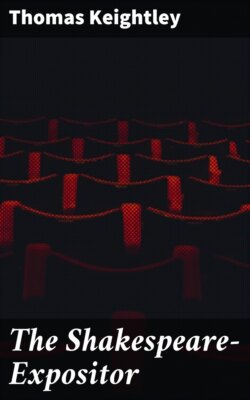Читать книгу The Shakespeare-Expositor - Thomas Keightley - Страница 51
На сайте Литреса книга снята с продажи.
6.
ОглавлениеA printer is a transcriber or copyist, with the only difference that he uses type instead of a pen. He looks at the copy, as it is termed, and takes up the whole or part of a sentence in his mind, and then goes on composing or setting up the type. Meanwhile he is very possibly engaged in conversation, or he is listening to that of others, or he is thinking of something else. His mind being thus distracted, errors will naturally arise in what he is composing. Besides, he has very often to contend with the difficulties caused by illegible writing in the manuscript. There is another source of error—and one in which the printer is perfectly blameless—which I have never seen noticed. It is this, that in speaking and reading we often slur over, elide or suppress the final consonant if the following word begin with a consonant; and this is not peculiar to the English, but is to be found in the French, German, and other languages, being in fact a law of nature, the result of our organization. The most usual case is when, as in the following example, the first word ends and the next begins with the same consonant. Thus in one of the Irish Melodies of Moore, a poet more devoted to euphony than to sense, we have
Thou wouldest still be adored as this moment thou art,
where it will be seen that the letters in italics are not, and cannot be pronounced, without making a pause between the words. In another song of the same poet we have
Mary, I believed thee true,
And I was blest in thus believing.
Here, if it were not for the second line, no one, on only hearing the first, could tell whether the word was believed or believe; for the sound is exactly the same: see on Much Ado, iv. 1; M. N. D. ii. 1. We surely then cannot blame the printer who makes a mistake in such cases, but we should not hesitate to correct it. We should also remember that this suppression or clipping is more frequent with the classes to which the printer probably belonged than with the educated.
It is chiefly the dentals t and d that are thus suppressed before words commencing with a mute consonant; and it is surprising what a number of words there are in common use that have been thus curtailed. Thus in and the d is rarely sounded, even before vowels; of is so generally pronounced o' that it were needless printing it so, as is usual in the dramatists, were it not that o' represents on as well as of; we all say "Who did you see?" though we should write it "Whom did you see?" Instances, in fine, are numberless; but we should keep the principle constantly in mind. See the note on sly-slow, Rich. II. i. 3; and on by peeping, Cymb. i. 7.
On the other hand, there is sometimes a transference of a consonant from the end of one word to the beginning of the next, which injures the sense—ex. gr.,
Thence forth descending to that perilous porch
Those dreadful flames she also found delayed.
F. Q. iii. 12. 42.
Here the poet probably wrote allayed, and the printer transferred to it the d of found. See on Temp. iv. 1.
While treating of elision, it may not be useless to remark that when a word beginning with h is monosyllabic, or is not accented on its first syllable, the h is not sounded. Any one who will observe will find that his, for example, is usually pronounced is; so that there is no occasion for the 's of the dramatists. So we should write and pronounce a history, but write an historian and pronounce an 'istorian; for a historian, as it is too often written and pronounced, makes a most unpleasant hiatus. We may observe how constantly the aspirate is suppressed in the poetry of Greece and Rome.
The errors of transcribers and printers are Omission, Addition, Transposition, Substitution. Of these I will now give instances, chiefly from my own experience. I must, however, previously notice the rather curious fact, that these four sources of error, which I had traced out in our printed works, are all, and no other, acted upon by that, in my mind, most able of the German critics, J. Olshausen, in that chef d'œuvre of criticism, his Comment on the Book of Psalms, thus showing how universal they are.
